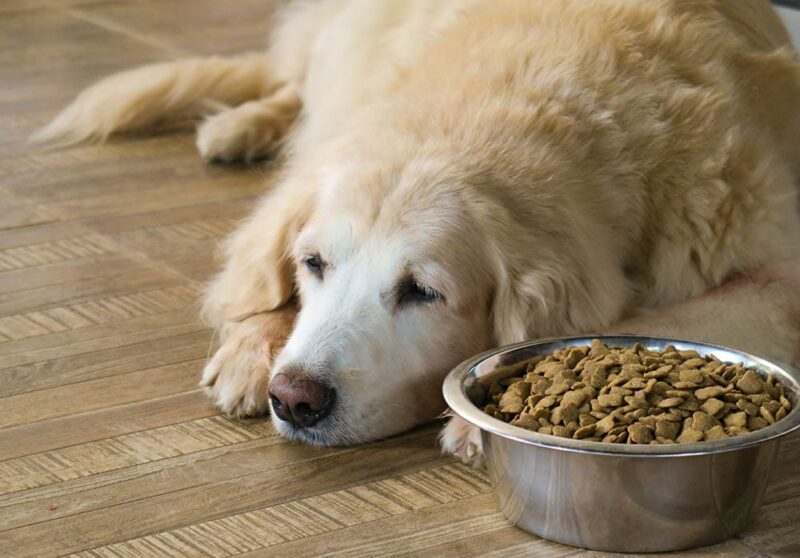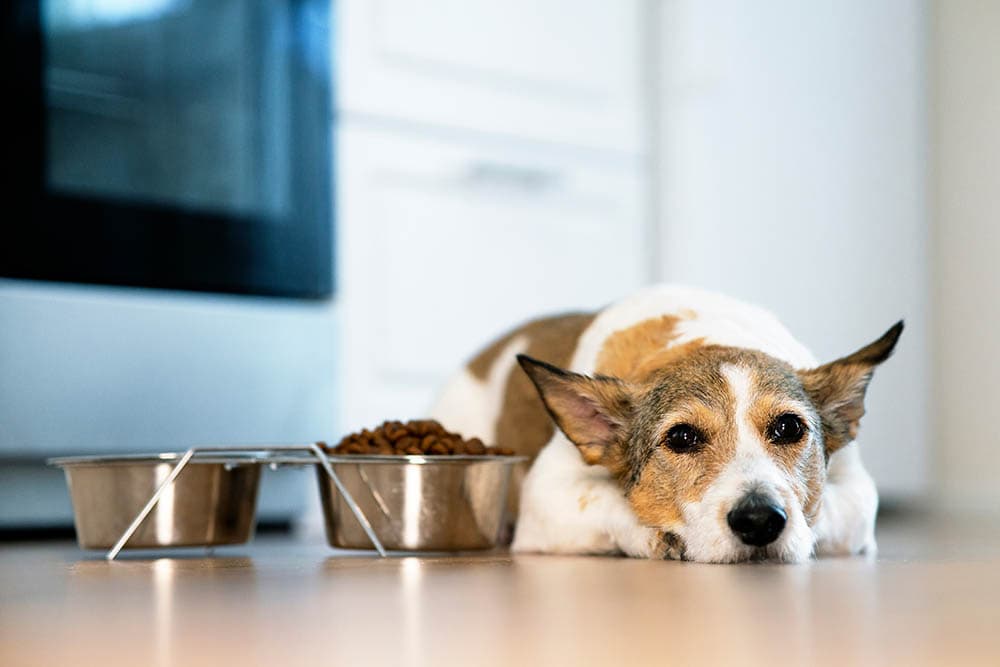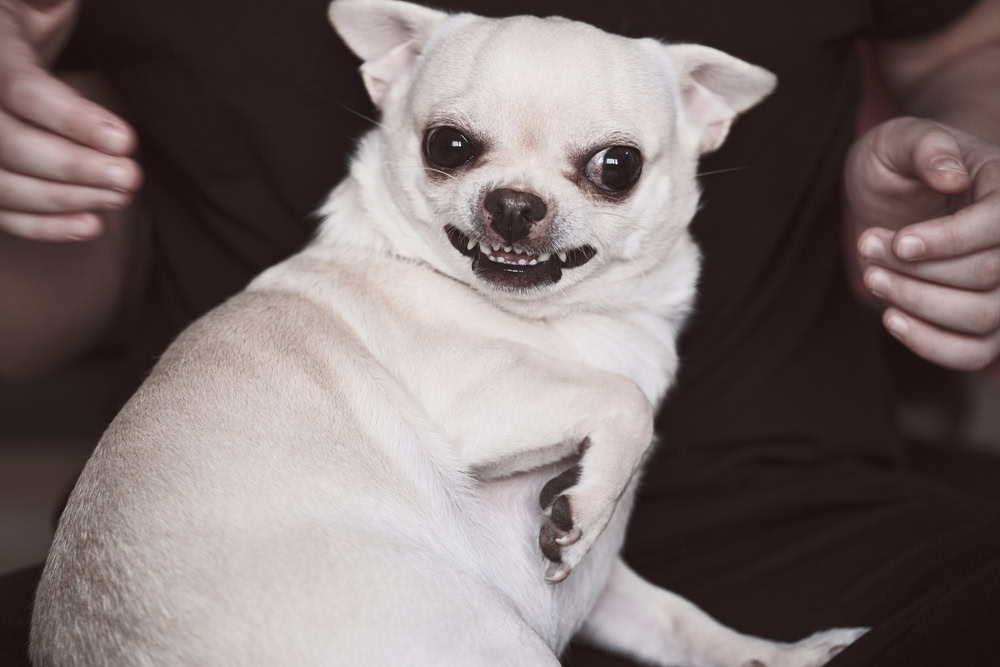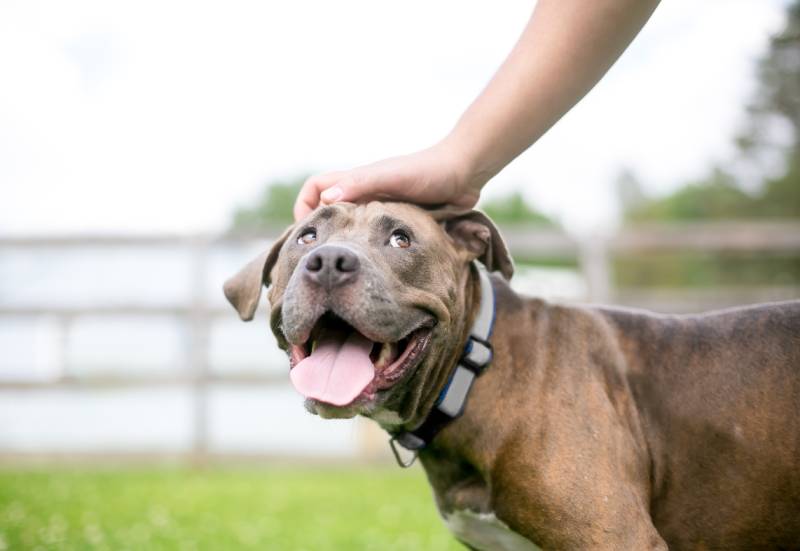VET APPROVED

The information is current and up-to-date in accordance with the latest veterinarian research.
Learn more »Click to Skip Ahead
Many dogs lose their appetite when they are ill, stressed, or simply picky, and it is understandable for a dog owner to be concerned. You know one of the most important things is that your dog is drinking water. But should you be worried if your dog isn’t eating but is drinking water?
One missed meal should not be a reason to panic, but it should be a reason to be alert. If your dog is refusing food, even if they are still drinking, you need to find out why as soon as possible so you can help remedy the situation and prevent it from escalating. Keep in mind that if your dog’s appetite drops and thirst is excessive, this can also be a sign of illness. This article will go through the reasons why your dog may not be eating, when and if you should be concerned, and some tricks to get your dog to eat.

Reasons Your Dog May Not Be Eating
There are many reasons why your dog could stop eating, but the causes typically fall into three categories: issues with food, medical, and behavioral.
If your dog has been enjoying the same food for some time, it could be an issue with the food but not the food brand itself. It could be expired, spoiled, or stale. Some dogs will still happily eat the food as it comes, while others may be pickier and turn their nose up.
Check the expiration date on the bag or tin and ensure that the food is stored in an airtight container. If the food has passed its expiration, you must throw it away. A healthy dog shouldn’t get tired of their food if they’ve been eating it for a while, so if that is possibly the case, it may mean that your dog is receiving too many treats or human food, or they may have a medical condition.
Many medical conditions could cause your dog not to eat, including anything that induces nausea, pain, fever, or lethargy.
- Gastroenteritis
- Poisoning
- Fever
- Intestinal parasites
- Dental disease
- Infection
- Pancreatitis
- Kidney disease
- Liver disease
- Cancer
Anxiety,1 stress, or fear can cause a decrease in appetite in some dogs. Even minor events can cause anxiety and make them unable to eat. If your dog’s routine and environment have changed, they may feel too unsettled to eat like they normally do.
A dog may avoid their food bowl due to intimidation from another pet in the house. Some dogs don’t enjoy eating close to or next to other pets in the house, so if you have another pet, try separating their bowls, so there is no intimidation.

Why Is My Dog Not Eating but Drinking Water?
If your dog drinks but does not eat, it could be due to reasons such as nausea, stress, or mouth pain, to name a few. Like humans, dogs can’t go longer than a few days without water. If your dog is drinking water and keeping it down, that is a good sign. However, if your dog is vomiting after drinking water, there could be a more serious issue and you should contact your vet straight away.

How Long Can a Dog Go Without Eating? Should I Worry?
Dogs cannot function without regularly eating and drinking; however, they can survive longer without food than water. Healthy dogs with no underlying medical conditions may be able to survive after 2 to 3 days without eating, but you should never wait that long. As soon as you notice that your dog is not eating, we recommend taking your dog to the vet, because it is vital to understand why this happened. Your vet may perform some tests, and provide medication and the hydration and nutrients your dog needs as soon as possible.
Every dog is different. If your dog battles with health conditions, you will need to get them to the vet soonest. If they miss a meal, it is good to think about what they may have consumed in the last 24 hours.
Your dog could have eaten scraps from you or the neighbors, or you may have given your dog a few more treats than usual or fed it a double-sized serving at dinner by accident. You need to determine if your dog is just not hungry or if they are choosing not to eat. If your dog is experiencing these signs and not eating, contact your vet immediately.
- Vomiting
- Diarrhea
- Drooling
- Weakness and lethargy
- Drinking excessively
- Urinating excessively
- Weight loss
- Wheezing
- Coughing
- Gagging

What to Do When Your Dog Doesn’t Eat

If your dog is not eating but drinking water and doesn’t show any other signs of illness, there are some things you can do to get your dog to eat and keep them safe.
- Add water or unsalted chicken broth to their food.
- Try mixing boneless and skinless chicken breast with rice in your dog’s kibble.
- Try adding probiotics to your dog’s food to increase flavor and improve gut health.
- Consider changing your dog’s food.
- Heat up your dog’s food. The smell may entice your dog to eat, and warm food is more palatable.
- Try hand-feeding small pieces of food to your dog. This will help comfort your dog and may encourage them to eat.
- Offer them their favorite treat.

Conclusion
Your dog can go longer without food than without water, so if your dog is drinking (not excessively) and not vomiting or is showing any other signs of illness, you can give them a few hours. There are many reasons your dog may not be eating, some of which are not serious and some of which are. It’s essential to monitor your dog and think about their food intake in the last 24 hours. If your dog has no other signs and is drinking their normal amount of water, it could be a bit of nausea which should pass, but if there are other concerning signs of illness, you should contact your vet as soon as possible. Never wait longer than 48 hours to contact your vet.
See also:
- https://www.petmd.com/dog/symptoms/why-my-dog-not-eating
- https://dogsnob.co/blogs/news/dog-not-eating-only-drinking-water
- https://drphillipsanimalhospital.com/2020/08/31/how-to-get-a-sick-dog-to-eat/#:~:text=How%20Long%20Can%20a%20Dog,eating%20is%20their%20water%20intake
- https://campcaninesb.com/how-long-can-a-dog-go-without-eating/
Featured Image Credit: Daria Lixovetckay, Shutterstock












